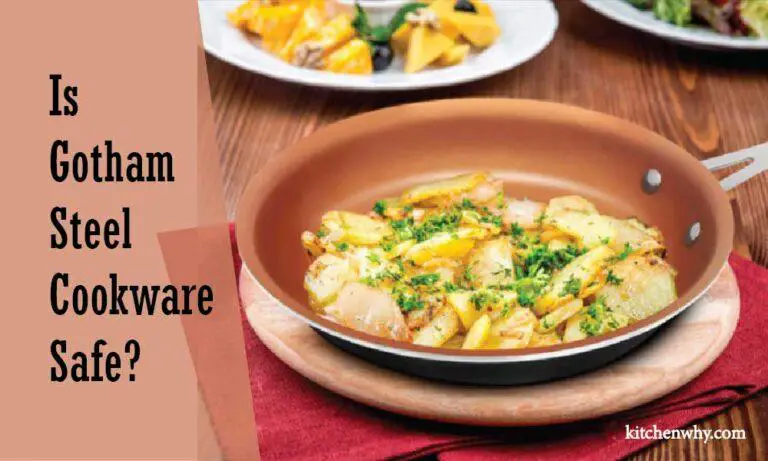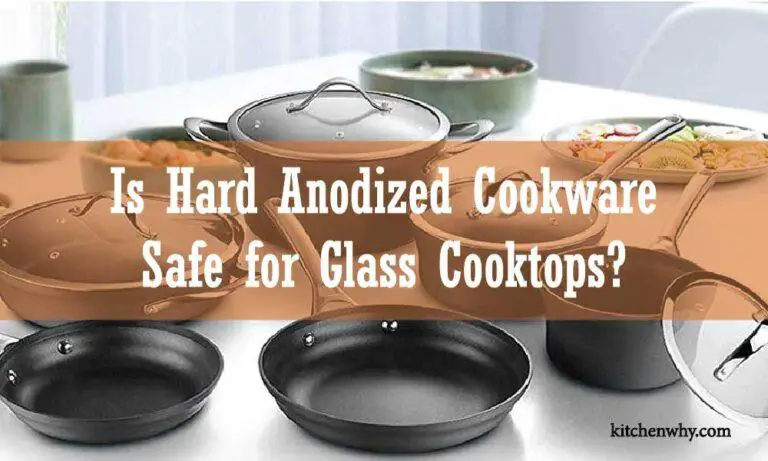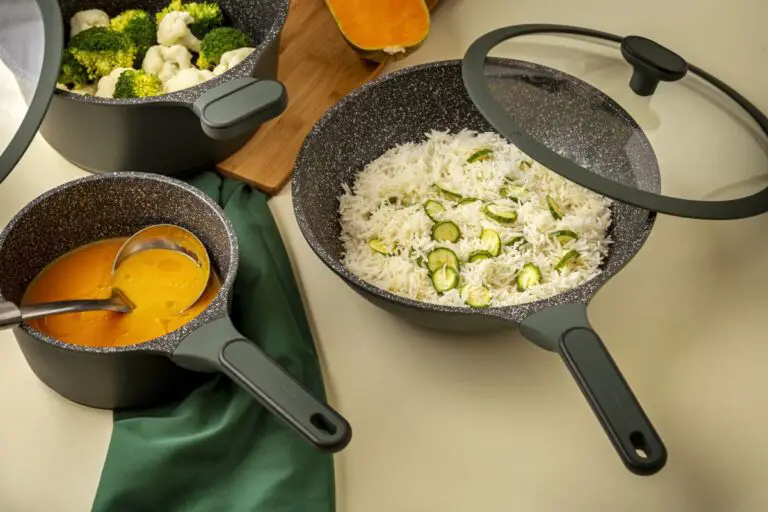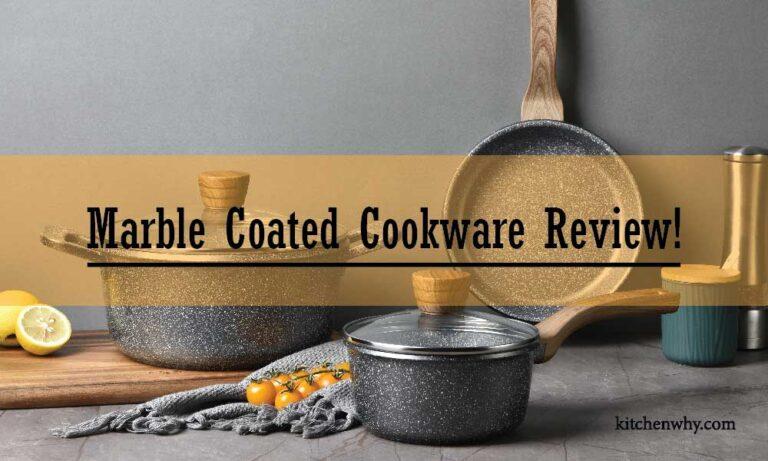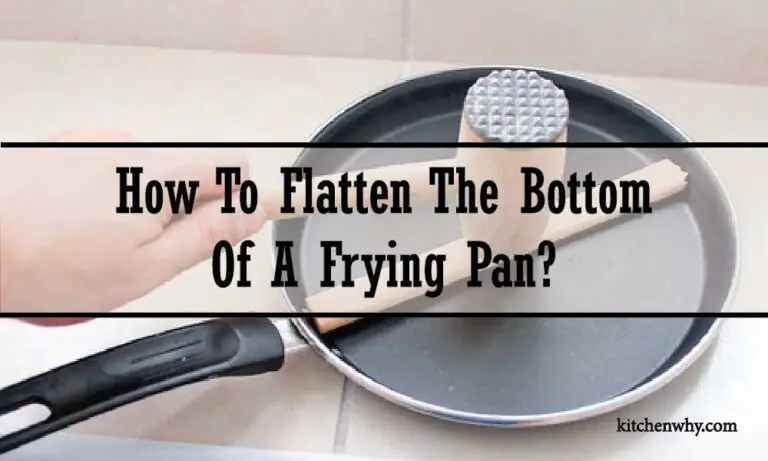Can You Recycle Frying Pan? Tips and Tricks for Proper Ways

If you’re like most people, you’ve probably got a few old frying pans lying around in your kitchen that have seen better days. Perhaps they’re scratched, dented, or simply outdated. Whatever the reason, you may be wondering what to do with them. Or can you recycle frying pans?
The answer is not a simple one, but it is possible. Frying pans can be recycled, depending on their materials and the recycling facilities available in your area.
In this article, I’ll unravel the mysteries surrounding frying pan recycling, discuss the materials they are commonly made of, and provide insights on how to dispose of them responsibly so that you can cook up a sustainable future for the environment.
Can You Recycle Frying Pan?
Frying pans are essential kitchen tools that help us cook delicious meals. However, like any other item in our home, frying pans can also wear out, break, or become outdated. When this happens, it’s natural to wonder ”can you recycle frying pans.”
To recycle a frying pan, follow these steps:
Types of Frying Pans Materials
Frying pans come in different materials, including cast iron, stainless steel, aluminum, and non-stick. Each type has unique properties that make it suitable for specific cooking needs. However, not all frying pans are created equal regarding recycling.
- Cast iron frying pans are durable and can last for generations. They can be recycled, but not in your curbside recycling bin. Instead, you can take them to a scrap metal dealer or a recycling company that accepts metals. ( Read More- Is Cast Iron Pan Good for Dosa)
- Stainless steel frying pans are also recyclable. You can put them in your curbside recycling bin, which will be picked up with other metal items.
- Aluminum frying pans are lightweight and easy to handle. They are also recyclable but not in your curbside bin. You can take them to a local recycling center or a scrap metal dealer.
- Non-stick frying pans are coated with a layer of polytetrafluoroethylene (PTFE), also known as Teflon. This coating makes them non-stick but also difficult to recycle. PTFE is not biodegradable and can release harmful chemicals when burned. Therefore, it’s best to dispose of non-stick frying pans in the trash.
Remove non-recyclable parts:
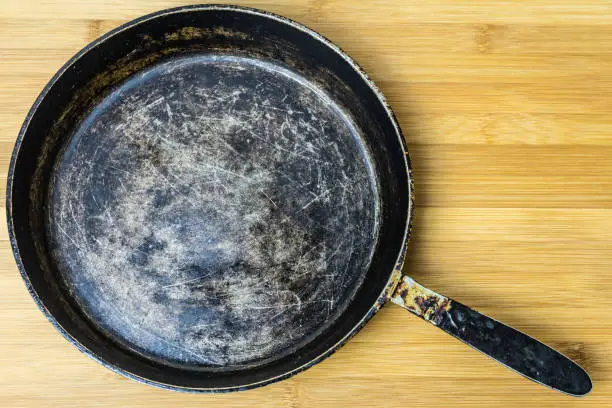
If the frying pan has a non-stick coating, plastic or wooden handle, or other non-recyclable components, you may need to remove them before recycling the pan. Some recycling centers may have specific instructions, so it’s best to check with them first.
Contact your local recycling center:
Contact your local recycling center and ask if they accept frying pans made of the material. Some facilities may have special metal recycling programs or direct you to another facility that can process it.
Prepare the pan for recycling:
Clean the frying pan thoroughly to remove any food residue or grease. If you remove any non-recyclable parts, dispose of them according to local waste management guidelines.
Recycle the pan:
Drop off the frying pan at your local recycling center, following their guidelines for metal recycling.
Remember that recycling guidelines and facilities vary by region, so you must check with your local recycling centre to ensure you follow the correct procedures.
What are The Benefits of Recycling Frying Pans?
Recycling frying pans has several benefits for the environment and the economy. Here are some of them:
- Saves Energy: Recycling metals uses less energy than mining and refining new ones. This reduces greenhouse gas emissions and conserves natural resources.
- Reduces Waste: When you recycle frying pans, you keep them out of landfills. This reduces the amount of waste that ends up in the environment.
- Creates Jobs: Recycling is a growing industry that creates jobs in sorting, processing, and transporting materials.
Alternatives to Recycling Frying Pans
If your frying pan is still in good condition, you don’t have to recycle it. Here are some alternatives to consider:
- Donate: Donate your frying pan to a local charity or thrift store. This way, someone else can use it and reduce the need for new items.
- Reuse: You can repurpose your frying pan for other household needs. For example, you can use it as a plant saucer, a bird feeder, or a pan for melting candles.
- Sell: You can sell your frying pan online or in a garage sale. This way, you can make some money and reduce waste.
Recycling vs Disposing of Frying Pans

Recycling is always the better option for disposing of frying pans. However, if your frying pan is not recyclable, you should dispose of it properly. Here are some tips:
- Trash: If your frying pan is made of non-recyclable materials, such as ceramics or glass, you can throw it in the trash. Make sure to wrap it in a plastic bag to prevent injuries to garbage collectors.
- Hazardous Waste: If your frying pan has chemical residues like oil or paint, it’s considered hazardous waste. You should take it to a hazardous waste facility for proper disposal.
Ultimately, recycling frying pans is possible, but it depends on the material they are made of. Cast iron, stainless steel, and aluminum frying pans can be recycled, while non-stick ones should be disposed of in the trash.
Recycling frying pans has several benefits, including saving energy, reducing waste, and creating jobs. If your frying pan is still in good condition, consider donating, reusing, or selling it instead of recycling or disposing of it.
Read My More Informative Post:
Frequently Asked Questions
Below are some of the frequently asked questions about recycling frying pans.
What types of frying pans can be recycled?
Frying pans made from materials like aluminum, stainless steel, and cast iron can typically be recycled.
Can Teflon-coated frying pans be recycled?
Teflon-coated frying pans cannot be recycled as Teflon is not a recyclable material. However, some recycling centers may accept Teflon-coated pans and attempt to remove the Teflon through a unique process.
How do I know if my frying pan is recyclable?
Look for a recycling symbol on the bottom of the pan or check the manufacturer’s website for information on whether the pan is recyclable.
Is it better to recycle or donate my old frying pans?
Both recycling and donating can be good options, depending on the condition of the frying pan. If the pan is still in good condition, donating it can help someone in need. Recycling the pan is better if it is damaged or no longer functional.
DO NOT THROW AWAY OLD FRYING PAN !
Final Thoughts
Can You Recycle Frying Pan? The answer isn’t always straightforward, but by taking some simple steps, you can help reduce waste and preserve the environment.
By identifying your type of frying pan and researching local recycling options, you can ensure your frying pan is properly disposed of. Additionally, donating or gifting your frying pan to someone else is another great way to extend its lifespan.
Remember, with a little effort, we can all positively impact the planet and create a sustainable future.
Suggested Post:


